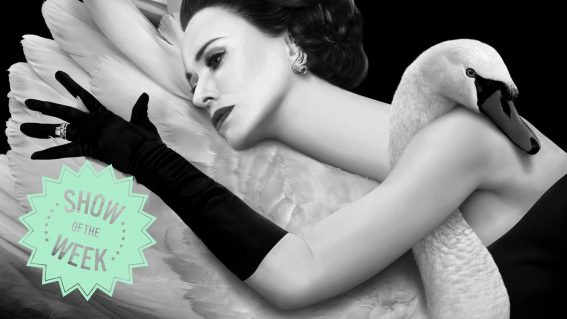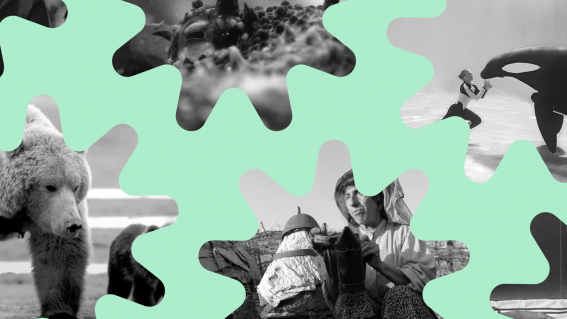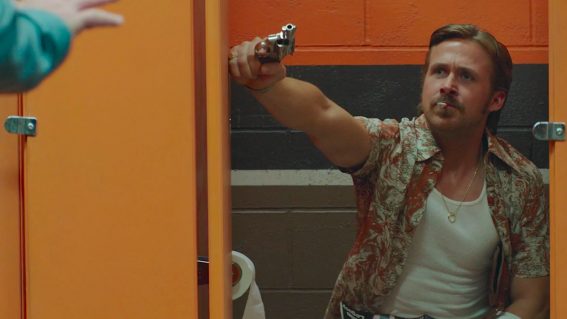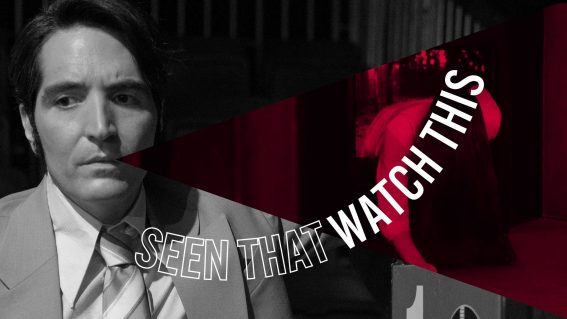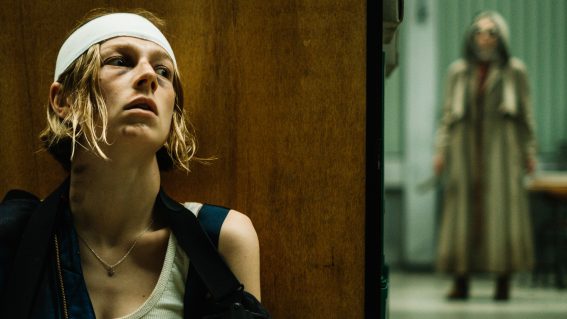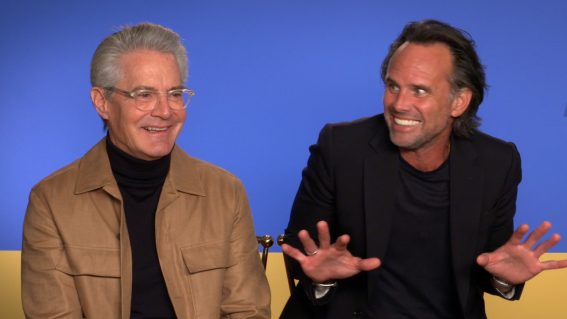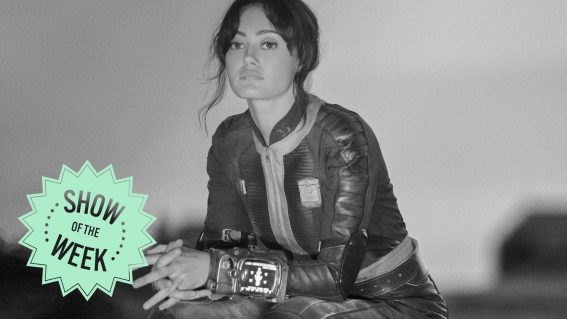Interview: Iain Morris, director of ‘The Inbetweeners 2’
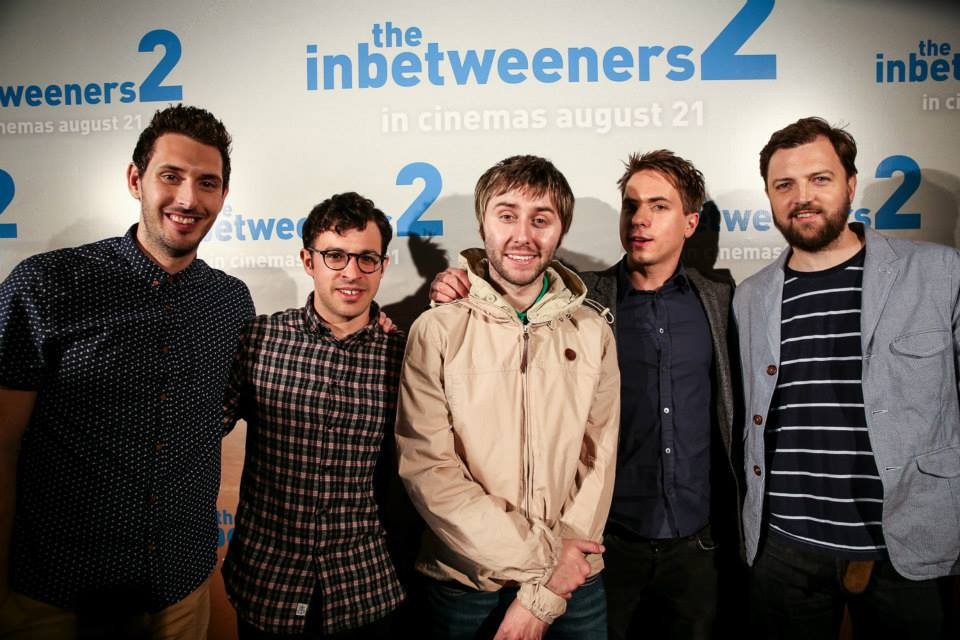
Back Down Under promoting the release of the similarly Antipodean film he co-directed, Iain Morris had a chat to us while in Auckland, answering all the key questions that had been plaguing this journo since seeing the film. Read on to find out more than you ever wanted to know about drawn penises, prosthetic penises, and making a movie in which the characters all act like… penises.
FLICKS: Thanks for joining us here in New Zealand.
IAIN MORRIS: I love New Zealand! I love the bands Split Enz and Crowded House, but basically the reason I came to Australia when I was 15, is I thought, logically, I was like, “I can’t get to New Zealand, but if I go and be an exchange student in Australia, then maybe I’ll have a chance at seeing them.” And actually, I did. I saw- Split Enz reformed, and Crowded House played a gig.
Aussie claimed them obviously anyway, so you might as well have gone to Australia.
I know the difference! Actually, The Black Seeds are in the film, there’s a Black Seeds song in the film. We try to use a lot of Australian bands. We tried to use as many Australian bands as we could, but yeah, Black Seeds are in there, and also there’s a guy called Shaky Graves, he’s from Austin, Texas, in there.
You’ve had quite a lot of Aussie experience to draw upon, in order to put it together.
Yeah, I guess. I was here when I was 16, and yeah, I wasn’t really travelling, but I was kind of there or thereabouts. Then I did go travelling, but to South America, a bit later, I was a bit older. To do some research, I went back a couple of years ago with a backpack and did a little bit of backpacking, which is terrifying at my age, quite frankly [laughter]. It was good. We had a good time there, and seeing places like the Arts Factory, in Byron Bay, they’re pretty inspirational places in lots of ways.
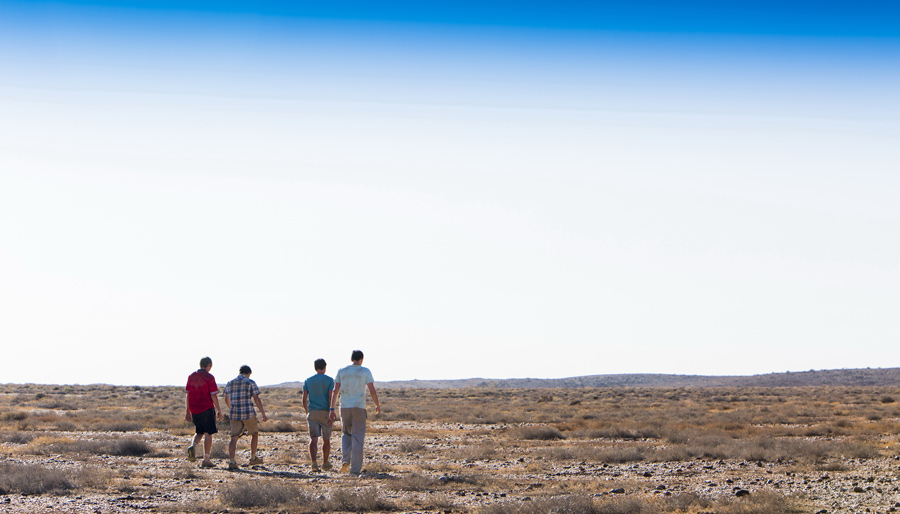
One of my favourite Aussies in the film, is Jay’s uncle. I thought he was a very well-drawn character.
Yeah. He’s the simple mirror image of Jay’s dad, was the idea, but in Australian form. We were so lucky to get David Field, who normally does dramatic roles, you know he’s in The Rover now, and he’s in Chopper and stuff, famously. When he came in, we were like, “Okay. You’re kind of terrifying, but this is what we quite like about you, is you know, you’re funny, but there’s definitely an edge of being absolutely terrifying here as well [laughter].” I’m glad you liked Uncle Bryan, we’re big fans.
He makes fantastic use of the verb “to root”. That’s quite important. I always wondered, are you a cricket watcher at all?
Yeah, huge cricket fan.
I always wondered what English cricketer Joe Root thinks of the expression. Like how long it took him, arriving Down Under, before the penny dropped.
Do you know what, I hadn’t even thought that, but you’re right. No wonder he’s getting such a hammering, it’s a terrible last year.
We haven’t really seen any banners in the crowd making the most of it.
No, no. It’s about time they worked on that one.
He’s probably swung it into a pick up line, if there’s–
[laughter] “I’m Joe Root”
“Fancy a bit of a root?”
[laughter] That’s it, yeah.
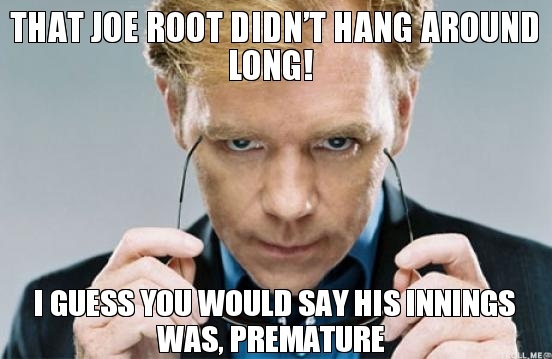
In that sort of same line of conversation, I’ve a couple of technical questions. What’s the technical name for the shot where there’s a flaccid penis at the bottom of frame, about to urinate on a guy. Is there a technical term for it?
There’s not a technical term, but we did do a storyboard of that. [Proudly] I hand-drew it.
How detailed? Just an outline, or..?
No, no, no. If you’re going to draw a penis, you know, it’s like being a kid at school again. You think, I’ve got a legitimate reason to draw this, so you kind of, you know, try and do a bit… Put a bit of foreskin in there, you know.
Again, we’re going to keep on the same topic, because there’s a shot near the end that suggests there’s a lot of thought that has to go into a prosthetic penis onscreen. Did you, as a director, have specific requirements for your makeup department? I mean, I’ve made a prosthetic penis for a film before, for a home video in my teens, made out of a sausage, and just a bit of sculpting going, “Oh yeah, that’s good. That’s pretty good.” Speaking as two artists, as two creatives, I was just wondering if you’d followed the same sort of process.
We’ve got a woman called Emma Scott, who worked for some of the first film. She’s an amazing makeup artist, and does these incredible stuff. She did Dead Set, which is an amazing zombie series that Charlie Brooker did, she did all their makeup. She came to us, we were like, “Okay, you probably won’t be doing anything as violent as that, but we are going to need really good penises.” She’s got a guy that makes them and sculpts them, and they’re incredibly expensive. Genuinely, sometimes we’d be having budget conversations, where we’d be like, “We can’t afford four penises,” and I’m like, “You must. We need four.” They’re like, “Can you re-use one of the penises?” I’m like, “I don’t know if this is going to work.” So actually, one of those is re-used from Neil’s penis. There was much more discussion about penises than we’d hoped for. But also, Emma would be like, “What do you think, is this okay?” as we’d go through them all in the makeup room. It’s no real job for an adult, but it is, at times, you do sort of giggle behind your hand, and think, “I can’t believe I’m actually getting paid to have this conversation.”
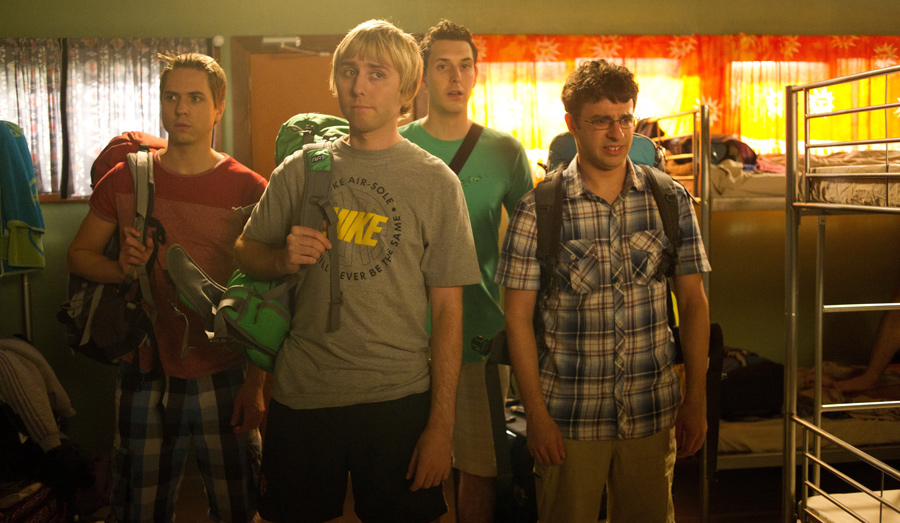
Awesome. Not to take away from the actual work involved, but I think that that spirit does permeate into the film.
Good, good.
The Inbetweeners taps into such a vein of horrible, brutal realism. There’s something about watching it with a theatre that’s half women, and it’s like, “Yes, you are laughing at how pathetic dudes are,” and I can relate, unfortunately, to far too many of the situations.
That’s good, that’s great. That’s the cinematic experience, you know. I think that’s exactly it. I think also, we almost wrote the first series, and then we’ve always had women in mind. The first series are actually more popular with women than it was with men, because they sort of got the idea of seeing behind the curtain about how pathetic guys are, and hearing these conversations.
Guys would rather think of our teenage years as a bit more like ‘Skins’, but the reality is, no, not really.
No, it never happened. For us, weirdly, when we talk about the film, for us, the cinematic experience, like why people should pay to go and see it rather than get it on the DVD or whatever, or watch it on TV later is that it’s not just big wide shots. There’s something about, it’s about sitting with 400 or 200 other people in a room, who are all laughing at the same moment. Having that communal experience of laughter, I think, is what can be cinematic about comedy films. That’s something we’ve always really tried to push with it, you know. I guess that’s sort of the bigger moments of kind of, our attempt to be cinematic in two senses. One is to do bigger things we couldn’t do in a sitcom, but also to sort of try and push an audience reaction, so that you’re enjoying laughing in a room full of other people, I guess.
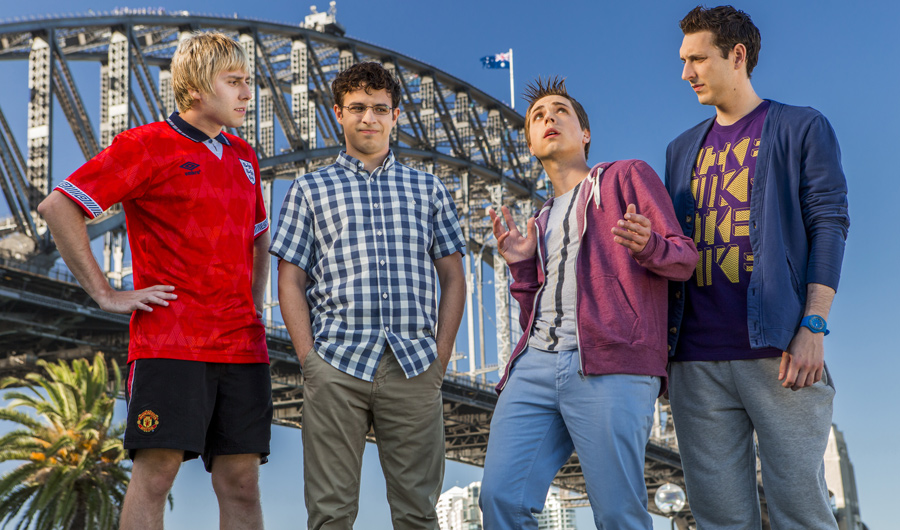
Let’s get nerdy on that exact topic for a second, because if that’s the objective, that’s a very different kind of comedy to TV comedy, because that’s often targeting a solitary viewer. But with pulling that whole theatre audience along with your comedy narrative, the jokes build differently, don’t they? There’s a cumulative effect, rather than just, here’s a gag, here’s a gag, here’s a gag.
Exactly that, and I think this is interesting, because I think what we’ve – and again, and I don’t know how successfully we’ve done it, but what we’ve tried to do on both films -is to totally keep the thing the same, but mix up both. So what you’re saying is, this is still the TV show, there’s still little one-liner conversations, that hopefully you can enjoy the lines in, where at home you might really laugh at. In a cinema, I think you’re looking to be impressed a bit differently. They say you need to be drawn along with it more. I think when people watch it back on, you know, TV or whatever, they’ll be laughing a lot more at the lines, because they’re on their own, as you would engage with a sitcom; whereas in a cinema, I think you need those bigger moments to really get you going. Richard Curtis actually helped us quite a lot with the first film, and he talked about drilling into the jokes, and saying, “Okay, if you’ve got a big piece, or big idea, don’t just let it go. At least think about what you can do with it, how you can expand it.” I think the water slide thing particularly, and the song, when Will’s playing guitar, were two of those moments when we were like, “Let’s see how far we can push this, and see how far we can get, and see if people will keep coming with us.”
I guess the successful examples of that are when the beats of the joke are coming so fast that you haven’t quite recovered from the last one.
Good, good, good. The other thing we tried to do – both in the TV series and the films – when we’re editing it, we don’t leave a lot space for laughs. Because, I think, what we want to make is something that rewards a second viewing. A lot of people have said to us, “I laughed over so many of the lines the first time. When I watched it again, I enjoyed it more, because I could enjoy some of those lines again.” That’s something we’ve always tried to make work as well, is just try and make it worth a repeat viewing, to both the TV series and the films, I guess.
At the Q&A last night, Simon got the awesome question about what his wife’s “clunge” looked like.
That was an awesome question.
You must have an interesting point of view being around the cast in public and seeing how people interact with them.
I was very good friends with Ricky Gervais when The Office first came out. It was the same thing – people would just be like, “All right, mate?” They’re drunk, because they knew that Brent was such a wally, they felt that they could go up and just get an arm around him, and you know, buy him a pint. It was an amazing creation, to get to that stage, but the truth is, these guys are incredibly nice, and people will chat to them, and talk to them, and ask them things, because I think they do feel relatable as characters. But they’re just incredibly polite and nice to them, and chatty. This press tour we did in Australia, it’s been exhausting for them. They’ve done like, 30 interviews in a day, they get up at 7:00 in the morning, they’ve been going to bed late, because of the premieres. They still haven’t even been in the southern hemisphere for a week, and the jet lag, and yet– you know, at airports everywhere, they’re still doing photographs and stuff. I’m very proud of them. They are basically just nice people, is the truth. All four of them are just, nice people.
You got that right at the start, then.
We got lucky. We’ve got a sort of casting rule, that we don’t cast anyone in any of the parts, who we think might be an arsehole. Even if we get a slight sense of it in the casting. So obviously our casting process is more about “are you a nice person?” than how well do we think you can do the job.

